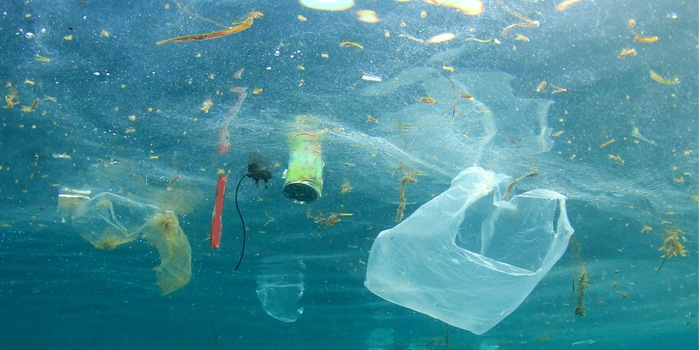
Is it all greenwashing or what?
Now the big brands have also discovered environmental protection. At last, one is inclined to say. Or is it all just window dressing?
"Life in plastic, it's fantastic" sang the Barbie Girl from Aqua in 1997 and landed the summer hit of the year.
Plastic waste is one of the biggest problems of our time. According to data from the United Nations Environment Programme UNEP, eight million tonnes of waste end up in our oceans every year, as well as 640 thousand tonnes of fishing nets that are lost at sea. By 2050, the oceans could contain more rubbish than fish. No wonder greenwashing is the summer hit of 2019 - or are brands and corporates really serious about fighting the plastic flood?
Marriott and China
Running shoes from the sea or swimwear from old carpet fluff. Hardly a week goes by without a fire announcing the salvation of the planet. Last week, the world's largest hotel chain announced that it was banning the small plastic bottles of shampoo and shower gel from the bathrooms of its Marriott hotels. The small bottles are being replaced by larger(!) plastic bottles, which are intended to produce less waste. Marriott offers around 500,000 rooms worldwide. That would be a lot of wood or plastic that doesn't end up in the sea.
So while you will be taking large plastic bottles from Marriott hotels in the future, Shangai was the first and only city in China to put recycling facilities into operation in July. The remaining 1.5 billion or so Chinese are apparently not yet familiar with recycling.
Ternua and the Basque Country
Outdoor trousers made from recycled fishing nets or hoodies coloured with walnut shells. I came across this at the ISPO in Munich in February. Spanish outdoor specialist Ternua from the Basque Country is serious about the topic of environmental protection.
Video: Manuel Wenk
The Basque Country is famous for its cider. It even has its own museum dedicated to it. The classic menu in a sideria is rounded off with cheese and walnuts. Ternua capitalises on this fact and collects the walnut shells from four restaurants in the region. The colouring is then made from the shells in Barcelona. The T-shirts and hoodies made from organically grown cotton are then produced and dyed in Portugal.
In addition to walnut shells, the company has also been collecting old fishing nets floating in the sea since 2015. Around twelve tonnes were collected in 2016. These nets are shredded, cleaned and then processed into granulate. Finally, they are turned into nylon thread. The Basques use it to produce outdoor trousers made of 50 per cent of this material. The rest of the trousers are made from old plastic bottles and recycled industrial waste.
Bat, Half Moon, Navaho and Buckshot
What the turtle is to Galaxus, the whale tail fin is to Ternua. The logo was inspired by the Basque whalers. However, the focus here is on protecting marine mammals and not, of course, hunting them. Since 1994, Ternua has supported Whale and Dolphin Conservation by sponsoring four whales named Bat, Half Moon, Navaho and Buckshot. They have become emblematic of the brand and have been spotted repeatedly in the world's oceans in recent years.
How sustainable sustainability works. Sustainable sustainability? Yes, a pleonasm in response to the greenwash summer of 2019.
You won't find any more pleonasms here and here Ternua at Galaxus.
From radio journalist to product tester and storyteller, jogger to gravel bike novice and fitness enthusiast with barbells and dumbbells. I'm excited to see where the journey'll take me next.
From the latest iPhone to the return of 80s fashion. The editorial team will help you make sense of it all.
Show all